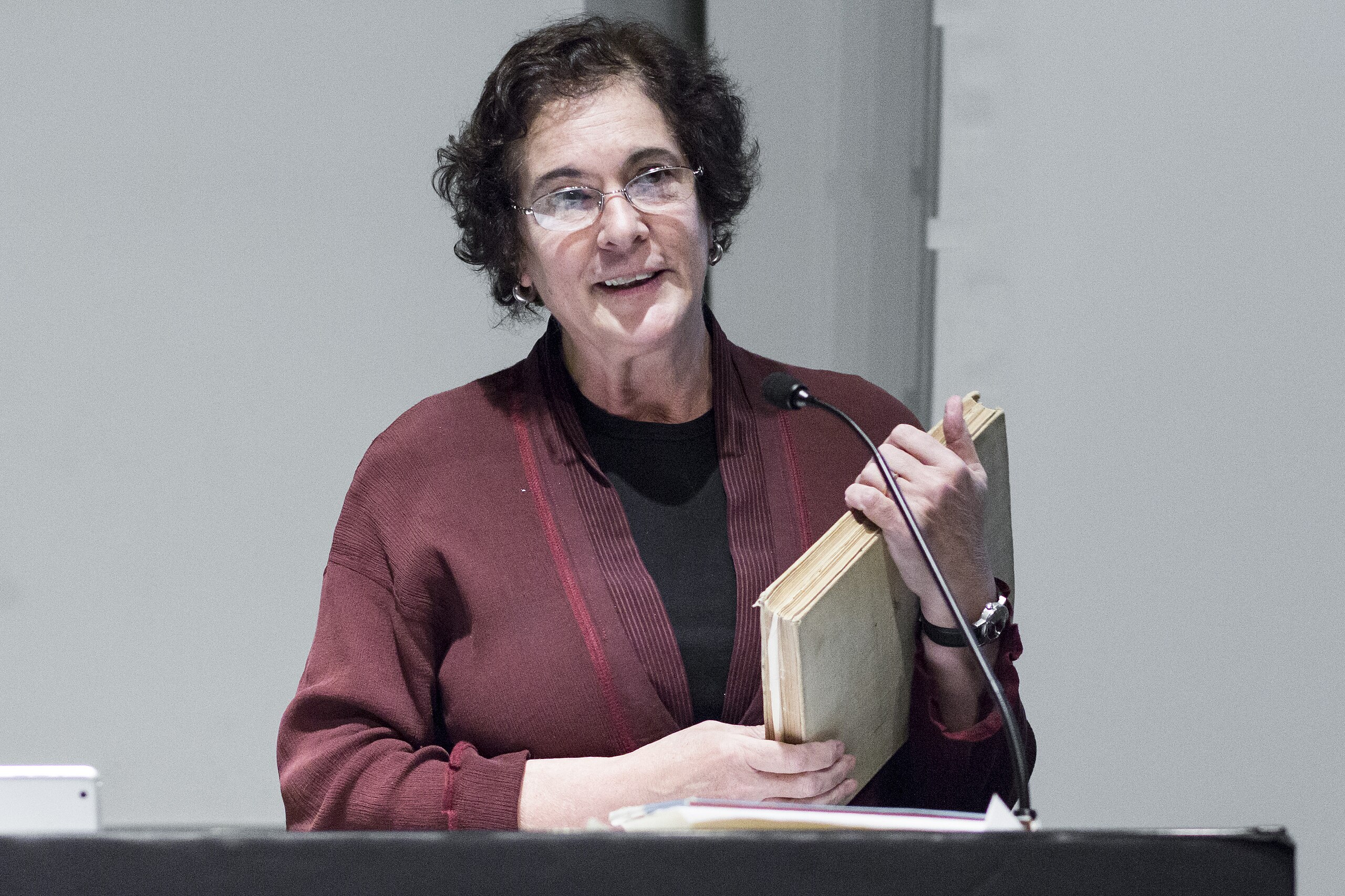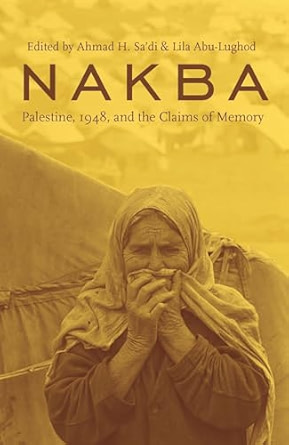Pathbreakers of Arab America—Lila Abu-Lughod

By: John Mason / Arab America Contributing Writer
This is the eighty-second in Arab America’s series on American pathbreakers of Arab descent. The series features personalities from various fields, including entertainment, business, sports, science, the arts, academia, journalism, and politics. Our eighty-second pathbreaker, Lila Abu-Lughod, is an American anthropologist, scholar, ethnographic field researcher, and professor. Dr. Abu-Lughod specializes in the Arab world, including Egypt, and issues of gender, power, and politics, especially as these involve women’s and human rights. She advocates strongly for Palestinian rights.
Abu-Lughod’s focus on Arab women sheds light on women’s rights generally, underscoring her concern for human rights in general
Lila Abu-Lughod was born on October 21, 1952, in Champaign, Illinois, to Palestinian-born Ibrahim Abu-Lughod and American-born mother, Janet. She graduated from New Trier High School in Illinois in 1970 and Carleton College in 1974. Subsequently, Lila graduated in 1978 from Harvard with a Master’s degree, followed by a PhD., also from Harvard in 1984. Both of those degrees were in Social Anthropology. She is the Joseph L. Buttenweiser Professor of Social Science in the Department of Anthropology at Columbia University in New York City.
Lila was born into academia, so to speak, given her father Ibrahim’s prominence as an Arab-Palestinian academic and her mother, Janet’s, reputation as a leading American urban sociologist. Additionally, she spent several years during childhood accompanying her parents, who were doing research in Egypt. During her graduate school years, Abu-Lughod lived for several years with the Awlad ‘Ali Bedouin tribe in western Egypt. She resided with a community leader and his large family.
Based on her ethnographic research, especially her experiences living with the Bedouin women from the Awlad ‘Ali, Lila authored two seminal books: “Veiled Sentiments: Honor and Poetry in a Bedouin Society” and “Writing Women’s Worlds.” These books derive directly from her research on the Bedouin women’s poetry and storytelling. Abu-Lughod’s point of view on feminist issues does not fit the normal mode of speaking about women in the Arab and Muslim World. She criticizes the way the conversation focuses on legal issues, one that “neglects history and politics.” She “calls for the need to formulate a new discourse that does justice to Arab and Muslim women and takes into account the local context and inherent complexities within that.”

Abu-Lughod tells of how her work conducted with Muslim Bedouin women in Egypt does not reflect the standard analysis of women’s rights. That approach uses “legal frameworks as a benchmark for emancipation not only within the context of women, but also about Arab society as a whole.” This only adds to the negative stereotyping of Arab society, “creating a colonial dependency under the guise of freedom and the liberation of women.”
Abu-Lughod also suggests that applying a legal framework analysis, which centers on “the right to assets and property and on the freedom to work as the key to emancipation,” is inadequate to understanding the complexity of women’s lives. In other words, one must look at the contexts of traditional women’s lives, understanding that they live lives influenced by such forces as “cultural, political, religious, or economic.” And that women have perfectly adequate ways of communicating their experiences, ideas, and values–independent of others.
An Arab Center for Research and Policy Studies study best presents Abu-Lughod’s perspective on women’s rights, based on her anthropological studies of the same Bedouin women of the Awlad ‘Ali. It was there “where she observed that the challenges confronted by women did not lie in the lack of educational opportunities, as typically propagated by local and international NGOs, but more in the high cost and poor quality of education, which presents a hindrance to both girls and boys.”
“The deterioration of the quality of public education, she argues, is not down to gender inequality, but the neo-liberal approach that became dominant in recent years and undermines the role of the state and the provision of social welfare and services. If anything, Abu-Lughod found Egyptian young rural women to have shown remarkable perseverance in continuing their education and noted the sacrifices their families made toward that end.” Her work analyzes such criteria as employment and wage labor, which she says reflect a “Western liberal notion.” Abu-Lughod’s research is much more detailed, refined, and subtle than represented here, but space prohibits its full explication.
Abu-Lughod’s passion for Palestinian rights equals her principled stance on women’s rights
As alluded to earlier, Abu-Lughod’s perceptions of Israeli-Palestinian relations were significantly shaped by her father, Ibrahim Abu-Lughod. Edward Said, yet another prominent Palestinian American, characterized him as “Palestine’s foremost academic and intellectual. Ibrahim articulated U.S. politics and society for the Palestinian community and eloquently articulating Palestinian aspirations to the rest of the world.”
In the arena of Palestinian rights, Lila Abu-Lughod is especially concerned about the discrimination and indignities faced by various academics because of their views on the Israel-Palestinian issue. Her larger concern is for Palestinians generally, especially as they have confronted “the different forms of violence, and particularly sexual violence that Palestinians face every day and even more since October 7th, 2023.”
An important source of Abu-Lughod’s views on Palestine is her co-edited volume, “Nakba: Palestine, 1948, and the Claims of Memory.” ‘Nakba’ or ‘the catastrophe of 1948’ refers to the dispossession of hundreds of thousands of Palestinians to create the state of Israel. This volume focuses on contemporary Palestinian experiences, including their moral claims for justice and redress. Specifically, it “brings to light the different ways in which Palestinians experienced and retain in memory the events of 1948.”

Moral and ethical concerns provide a framework for Abu-Lughod’s analysis of women’s rights, human rights generally, and more specifically, the rights of her Palestinian kin. She also has kinsmen on the Jewish side, so she is uniquely aware of the problems from both perspectives. Abu-Lughod’s study of people’s narratives and their memories of the past is essential for understanding the contested history of the present.
Sources:
–“Lila Abu-Lughod,” Wikipedia Series on Arab Americans, 2025
–Ibrahim Abu-Lughod, Wikipedia Series on Arab Americans, 2025
–“Dr. Lila Abu-Lughod,” Columbia University Department of Anthropology Faculty, 2025
–“Lila Abu-Lughod’s Contribution to the Feminist Debate in the Arab World,” Arab Center for Research and Policy Studies, 2014
–“Nakba: Palestine, 1948, and the Claims of Memory,” New York: Columbia University Press, Lila Abu-Lughod with Coeditor, Ahmad Sa’di, 2009
John Mason, Ph.D., focuses on Arab culture, society, and history and is the author of LEFT-HANDED IN AN ISLAMIC WORLD: An Anthropologist’s Journey into the Middle East, New Academia Publishing, 2017. He has taught at the University of Libya, Benghazi, Rennselaer Polytechnic Institute in New York, and the American University in Cairo; John served with the United Nations in Tripoli, Libya, and consulted extensively on socioeconomic and political development for USAID and the World Bank in 65 countries.
The views and opinions expressed in this article are those of the author and do not necessarily reflect the position of Arab America. The reproduction of this article is permissible with proper credit to Arab America and the author.
Want more articles like this? Sign up for our e-newsletter!
Check out our blog here!








